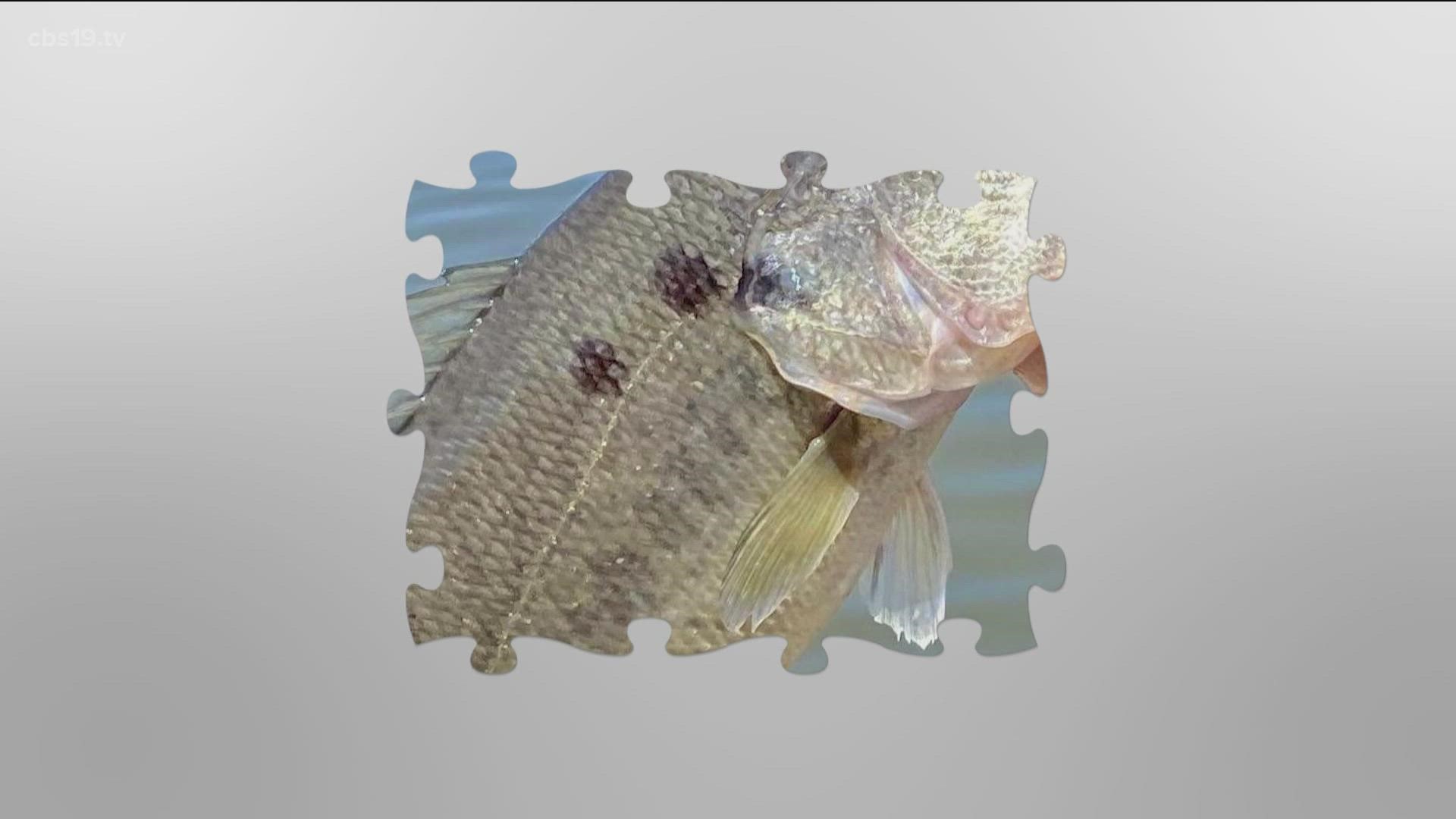TYLER, Texas — It's mystifying anglers and scientists. What's causing black spots on some bass in Texas?
Biologists refer to it as "Blotchy Bass Syndrome." A perplexing pattern of dark blotches randomly appearing on large and small mouth bass. It's a puzzle Dr. Cynthia Holt-Fox is trying to figure out.
“We want to map the distribution or prevalence, we want to determine how it transmits between individual fish and we want to determine its cause", Dr. Fox, a biologist with the Texas Parks and Wildlife Department said.
What is "Blotchy bass syndrome? Dr. Fox says it's also called melanosis or hyper-pigmentation. It shows up the fishes body and as recently as 2020, biologists determined that it's associated with a family of viruses. And it's a virus that's becoming more common among bass.
It was first documented in the 1980s. 18 states are now seeing it, including Texas. The U.S. Geologic Survey and the Texas Parks and Wildlife Department want to get a handle on it.
Dr. Fox says about 98-percent of the fish that they've seen that have the virus are perfectly healthy.
"They’re actively feeding, they’re actively spawning and it doesn’t affect them negatively but it has become prevalent," Dr. Fox said. "We’re seeing more anglers that asking about. They’re catching more fish that have it."
Dr. Fox is collecting pictures from anglers. So far, she's received more than 400 snapshots that show spots on the fins, on the tails, inside the mouth, and on the body. Dr. Fox wants more photos and needs your help.
“All we’re asking is the date they caught it and the location of the waterbody where they caught it. If they don’t want to tell us, some anglers don’t and that’s perfectly acceptable, we’re happy to know what county they caught it in because we’re going to try and break it down by watershed," Dr. Fox said.
Another part of the puzzle is where the virus is coming from. Dr. Fox said, “right now. We don’t know, we’re seeing fish from the same water body, even the same aquarium tank, some have it and some don’t and we don’t know why.”
The third piece of the puzzle centers around where the virus is coming from. Dr. Fox says reports of blotchy bass syndrome are coming in from places that we wouldn't expect.
"We’ve actually gotten submissions from people that have sent us photos of bass that they’ve caught in their private pond that a state agency has ever touched," Dr. Fox said. "We’ve never been there and all of a sudden their fish have these blotches on their fins or on their sides. And you know those fish have been there for years and never had a sign of it and now all of a sudden it’s popping up 15 years later."
When you put all the pieces together, The U-S-G-S and T-PW-D hope to answer whether they should remain curious about "Blotchy Bass Syndrome" or be concerned.
"We want to make that it isn’t going to negatively impact the fisheries because this is our job because we want to make sure people have healthy, quality fisheries to fish for generations," Dr. Fox said.
To send Dr. Fox photos or any other information email her.

